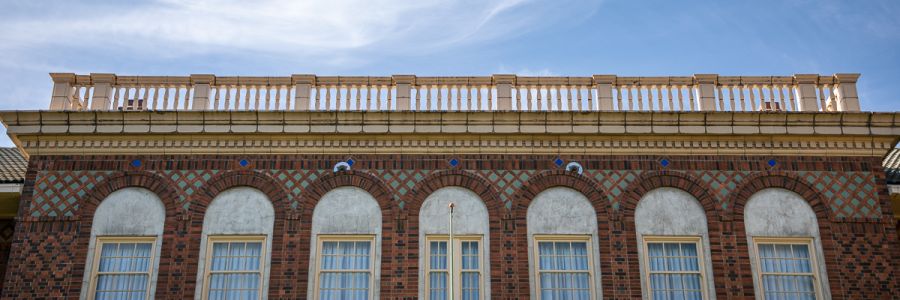Rolling Review
The General Education Committee has updated and simplified the GenEd proposal and renewal process to better support faculty and enhance student success. The goals with this update are to:
- Make the GenEd renewal process less onerous and more useful for faculty;
- Integrate career competencies to help students understand how GenEd courses support their career readiness; and
- Offer faculty the opportunity to explore Open Educational Resources (OER) and Low-Cost/No-Cost (NOLO) course materials with support from library faculty.
*Note* The changes to the form will be implemented over the summer and will be finalized before the Fall Semester Curriculum Deadline. These changes do not apply to Group 1 – Writing. The Writing Committee is developing a separate process and will provide guidance when ready.
What is Staying the Same / What is Changing
|
Staying the Same |
Changing |
|
Faculty craft course content to meet the student learning outcomes for each GenEd category. |
One CourseLeaf form is now used for both new (existing courses) GenEd proposals and renewals. |
|
Faculty must include GenEd learning outcomes in their syllabus. |
Renewal by GenEd Committee no longer requires detailed assessment reports. |
|
Faculty attach a syllabus and supporting documents to demonstrate how their course meets learning outcomes. |
Faculty briefly reflect on how the course has been modified to improve learning outcomes. |
|
|
Faculty select at least one (and up to three) career competencies to align with their course. |
|
|
Faculty may opt-in to receive help from 老虎机攻略 library faculty in identifying OER/low-cost materials. |
To get started, please review the new five-step process outlined in these instructions:
- Five-Step Process for Rolling Review.
General Education Groups & Learning Outcomes
-
Beginning College Writing - WRIT 101
Writing Across the Curriculum (WAC)
- Use writing to learn and synthesize new concepts.
- Formulate and express written opinions and ideas that are developed, logical, and organized.
- Compose written documents that are appropriate for a given audience, purpose and context.
- Revise written work based on constructive comments from the instructor.
- Find, evaluate, and use information effectively and ethically.
- Begin to use discipline-specific writing conventions.
- Demonstrate appropriate English language usage.
Writing in the Disciplines (WID)
- Identify and pursue sophisticated questions for academic inquiry.
- Find, evaluate, analyze, and synthesize information effectively and ethically from diverse sources.
- Manage multiple perspectives as appropriate.
- Recognize the purposes and needs of discipline-specific audiences and adopt the academic voice necessary for the chosen discipline.
- Use multiple drafts, revision, and editing in conducting inquiry and preparing written work.
- Follow the conventions of citation, documentation, and formal presentation appropriate to that discipline.
-
- Upon completion of the mathematical literacy requirement, a student will be able to effectively apply mathematical or statistical reasoning to a variety of applied or theoretical problems.
-
- Read and write if the language is classical, such as Latin.
- Speak and aurally comprehend, if the language does not have a written tradition, such as Salish.
- Perform all four skills (speaking, aural comprehension, reading, and writing) if the language is modern and has a written tradition, such as Japanese or French.
- Demonstrate both receptive (visual comprehension) and expressive (manual production) proficiency if the language is American Sign Language.
Exemption Request by Program
- Exemption request submitted by Program.
-
- Express themselves in the making of an original work or creative performance.
- Understand the genres and/or forms that have shaped the medium.
- Critique the quality of their own work and that of others.
-
- Analyze works of art with respect to structure and significance within literary and artistic traditions, including emergent movements and forms.
- Develop coherent arguments that critique these works from a variety of approaches, such as historical, aesthetic, cultural, psychological, political, and philosophical.
-
- Critically analyze and evaluate primary sources – such as texts, pictorial evidence, oral histories, music, and artifacts- within their respective historical contexts.
- Synthesize ideas and information in order to understand the problems, causes, and consequences of historical developments and events.
-
- Describe the nature, structure, and historical development of human behavior, organizations, social phenomena, and/or relationships.
- Use theory in explaining these individual, group, or social phenomena.
- Understand, assess, and evaluate how conclusions and generalizations are justified based on data.
-
- Correctly apply the basic concepts and forms of reasoning from the tradition or professional practice they studied to ethical issues that arise within those traditions or practices.
- Analyze and critically evaluate the basic concepts and forms of reasoning from the tradition or professional practice they studied.
-
- Demonstrate informed and reasoned understanding of democratic ideas, institutions and practices, from historical and/or contemporary perspectives.
- Analyze and evaluate the significance and complexities of engaged citizenship.
- Articulate the causes and consequences of key historical and/or contemporary struggles within democratic systems or their antecedents, including but not limited to those pertaining to issues of diversity, equity, and justice.
-
- Demonstrate an understanding of the diverse ways humans structure their social, political, and cultural lives.
- Interpret human activities, ideas, and institutions with reference to diverse cultural, historical and geo-political perspectives and physical environments.
- Recognize the complexities of inter-cultural and international communications and collaborative endeavors, and relate this to the complex challenges of the 21st century.
-
- Understand the general principles associated with the discipline(s) studied.
- Understand the methodology and activities scientists use to gather, validate and interpret data related to natural process.
- Detect patterns, draw conclusions, develop conjectures and hypotheses, and test them by appropriate means and experiments.
- Understand how scientific laws and theories are verified by quantitative measurement, scientific observation, and logical/critical reasoning.
- Understand the means by which analytic uncertainty is quantified and expressed in the natural sciences.
